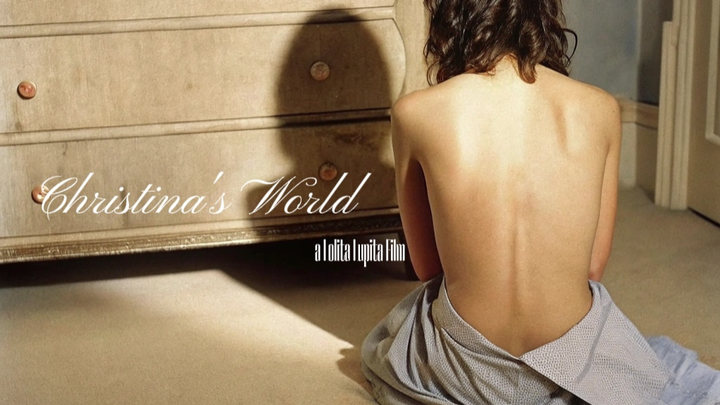
Support Christina's World: A Film of Resilience
Donation protected
“Christina’s World” is a short film inspired by Lolita Lupita’s favorite painting at the MOMA, one with the same name. The painting shows a woman in a pink dress sprawled in a field, her body almost reaching towards a farm in the distance. The story of the painting is based on the true story of Christina Olson and Andrew Wyeth. Andrew Wyeth was in awe with her neighbor's refusal of a wheelchair. She would drag herself around the farms and field. He decided to paint her one day, however the body in the painting is that of his wife rather than Christina. It evokes controversy, as someone else is being depicted as someone with a disability rather than the person themself. This is somehow parallel to the movie, as I’m portraying someone paralyzed. However, Christina was always a very strong-headed woman and was grateful for her moments with Andrew. We may perceive the painting in some way, but Christina perceives it in full gratitude and love.
The film I wish to make, Christina’s World, focuses on a heartfelt exploration of a character struggling with physical limitations while maintaining a fierce sense of acceptance. The script focuses on Christina’s daily life on the farm—jarring shots of her crawling downstairs, making jam, and retreating to the solace of a battered tree—conveying both the hardship and dignity of her experience. The dynamic with Andrew, the painter who sees her as a muse, brings her a new exciting outlook on life. The film’s quieter moments—like Christina laying in the tall grass imagining “a world far away”— is intended to show the poetic moments of solace as well as daydream and escape. I wish to demonstrate a poignant portrayal of resilience and one person’s love for simple joys.
The lingering, painterly images—particularly the recurring motif of Christina’s paralyzed legs against wide fields and the weathered bark of her favorite tree— are all visual reminders that we are nature, and beautiful as God created us in his image. The way the camera patiently follows Christina as she drags herself through the grass highlights her internal fortitude without turning suffering into spectacle. The scenes with Andrew, filled with silences and hesitant exchanges, allow the subtext of unspoken longings to rise to the surface and to exemplify the power of things that remain unspoken.
Christina’s World” offers a subtle examination of disability, community perceptions, and personal agency. The neighbor’s casual suggestion of buying a wheelchair reveals the well-meaning but sometimes intrusive attitudes of the local population, sparking reflection on how society addresses physical challenges. Christina’s refusal to be confined by medical prognoses—“She doesn’t want one,” her father says—illustrates her quiet defiance, and acceptance of fate. She decides to live her life the way she would otherwise: fully and full of gratitude. Visually, the film uses recurring motifs, like raspberry juice dripping “like blood” down Christina’s wrists, to hint at the tension between fragility and inner strength.
The film has religious undertones, as she accepts the fate God has granted her, and rather than complaining, finds peace and gratitude in her paralysis. She slowly becomes familiar with it, and the development of her character develops from embarrassment to pride, as she identifies with the strength of the barren tree.
The film has many visual references to Andrew Wyeth’s artwork. The camera movements are as important as the story. For me, every angle and movement should have a purpose, as each human and animal on this planet does. Everything I do, shall be done with love and purpose. I believe as long as I aim for doing my best, I have done my best. I have carefully created a shot-list in order to communicate her tension, frustration and happiness. It’s attached with some storyboards in order to have a visual reference.
The film only has both the painter and muse as characters we can see, because it is such a personal relationship, all other voices are off screen: the father, the doctor and the neighbor. They represent a society that although familiar with, cannot interfere with Andrew and Christina’s interpersonal relationships.
Organizer
Regina Patino
Organizer
Brooklyn, NY